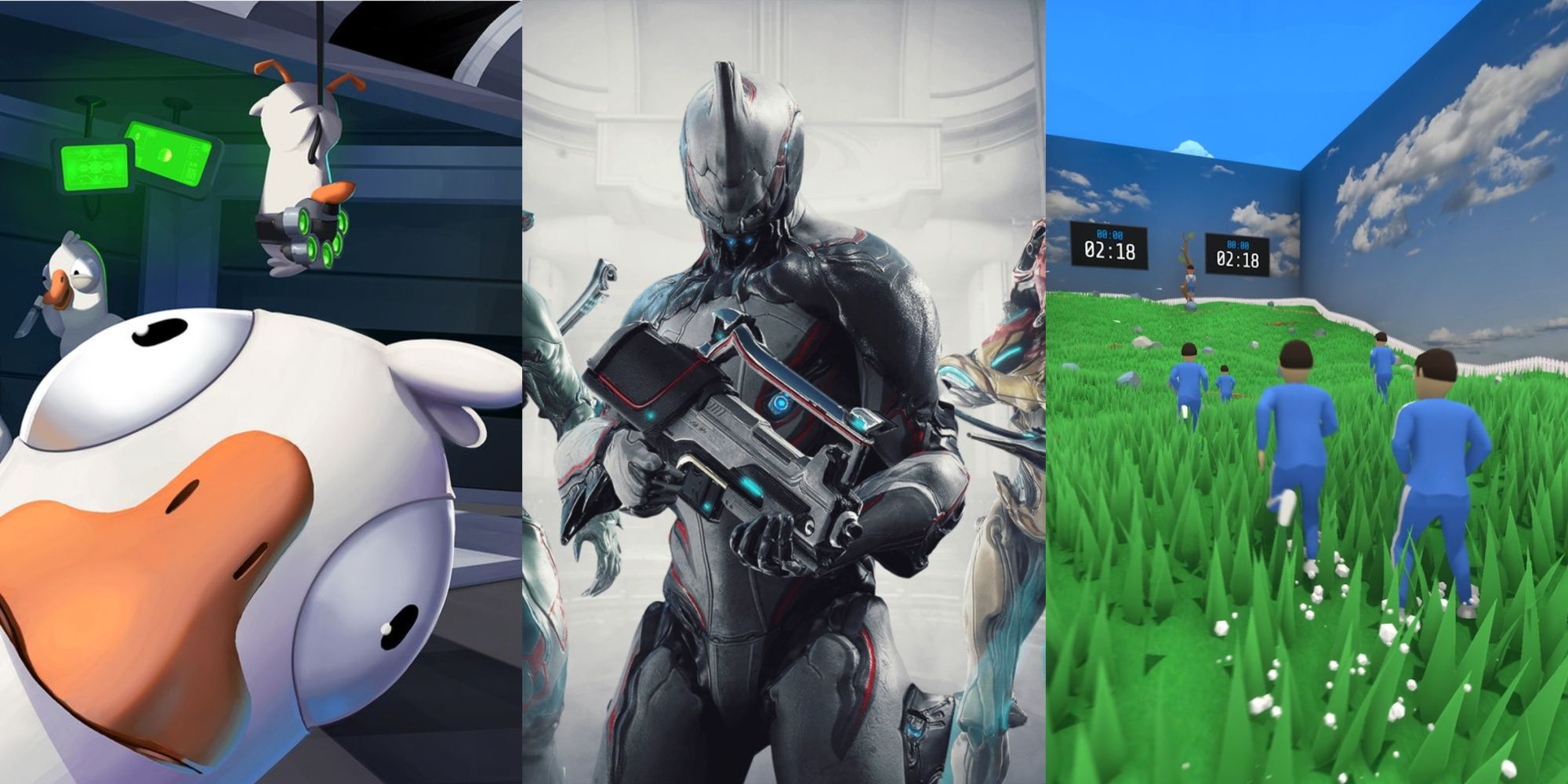Unlock New Challenges with Exciting Multiplayer Puzzle Games for Free This Year
Unlock New Challenges with Exciting Multiplayer Puzzle Games for Free This Year
Blog Article
Test Your Strategic Skills in one of the most Engaging Multiplayer Games
In the ever-evolving landscape of multiplayer pc gaming, tactical skills are the cornerstone of success, using gamers a possibility to display their tactical prowess across various genres. From the high-stakes intensity of real-time approach face-offs to the careful planning required in turn-based tactical fights, each game presents an one-of-a-kind challenge that evaluates the restrictions of strategic reasoning. As players take part in cooperative experiences or team-based competitions, the necessity of quick decision-making and partnership becomes apparent. But what really establishes these video games apart, and just how do they press your strategic capacities past traditional limitations? The answers await expedition.
Real-Time Approach Showdowns
Real-time strategy (RTS) face-offs have actually long been a foundation of involving multiplayer video gaming, exciting players with their mix of tactical deepness and busy decision-making. These games need gamers to handle resources, construct armies, and devise intricate strategies in real-time, usually against similarly competent challengers. The constant pressure to adjust and defeat challengers in a vibrant environment is what establishes RTS games apart, making them a favorite amongst affordable gamers.
Among the defining attributes of RTS showdowns is the focus on multitasking and resource administration. Gamers must assign their interest throughout different tasks, such as collecting sources, creating structures, and deploying units strategically throughout the battlefield. This requires quick reflexes and an acute capacity to prioritize actions, commonly bring about intense, adrenaline-fueled suits.
Noteworthy RTS video games such as "StarCraft II," "Age of Empires," and "Command & Conquer" have left indelible marks on the genre, supplying diverse gameplay auto mechanics and highly detailed worlds. Multiplayer puzzle games for free. These titles have grown competitive scenes and specialized areas, where players refine their skills, research methods, and involve in high-stakes competitions. The attraction of RTS showdowns depends on their ability to challenge gamers' strategic acumen and reflexive expertise in equal procedure
Turn-Based Tactical Fights
Turn-based tactical battles mesmerize players with their systematic technique to approach, contrasting the frenetic pace of real-time engagements. These games use gamers the opportunity to ponder over each move, fostering a chess-like environment where insight and careful planning are extremely important. Players have to anticipate their challengers' actions, adapt to developing situations, and perform well-thought-out approaches to secure victory. This genre stresses the value of critical depth, compensating those who can believe numerous steps ahead.
Rivals involve in intricate mind games, anticipating and responding to each other's methods with precision. Popular video games like "XCOM 2" and "World VI" exhibit this gameplay, urging players to think about every possible variable prior to committing to a course of activity.
In addition, turn-based tactical battles usually incorporate diverse systems and capacities, adding layers of complexity per suit. Gamers need to balance offensive maneuvers with protective strategies, manage resources judiciously, and maximize the potential of their pressures. This style's long-lasting charm hinges on its capability to challenge players' calculated acumen in a managed, calculated setup.
Cooperative Method Experiences
These games require players to function with each other in the direction of usual objectives, leveraging each player's distinct abilities and staminas to overcome obstacles. Titles such as "Overcooked" and "Deep Rock Galactic" exhibit this genre, stressing the necessity for gamers to synchronize their activities and techniques.

The appeal of participating method experiences depends on their ability to reinforce social abilities while providing a challenging and appealing gameplay experience. These video games cultivate a sense of unity and common function, providing gamers a rewarding alternative to conventional competitive gaming landscapes.
Competitive Team-Based Obstacles
Affordable team-based challenges present a vibrant arena where gamers pit their abilities versus opposing teams, stressing both private skill and seamless group coordination. These games call for participants to balance individual expertise with tactical great site partnership, fostering an unique setting where team effort is vital. Success in such settings frequently rests on the ability to communicate effectively, implement tactical methods, and adapt quickly to unfolding scenarios.
The engaging nature of these difficulties appears in the varied variety of video games that use team-based competition. Titles like "League of Legends," "Overwatch," and "Counter-Strike: Global Offensive" go to the leading edge, each supplying unique gameplay mechanics that demand cohesion and tactical acumen. In these sectors, the group's performance is as critical as the private payments of its participants, making every role considerable to the overall result.
Moreover, competitive team-based video games cultivate a feeling of camaraderie and shared achievement. Players should learn to count on and depend on each various other, forging bonds that enhance the video gaming experience. The stress of encountering formidable opponents better intensifies the excitement, making sure that participants are constantly challenged to raise their tactical thinking and gameplay implementation.
Mind-Bending Puzzle Conflicts
While affordable team-based challenges stress partnership and strategy, copyright puzzle fights supply a different type of intellectual interaction, concentrating on specific analytic and cognitive prowess. These games evaluate the limitations of analytical reasoning and creativity, calling for players to navigate complicated scenarios and fix detailed puzzles. Unlike team-based games, the emphasis below is on personal accomplishment and psychological dexterity, frequently under the pressure of time restraints or escalating difficulty degrees.
Players should work out spatial thinking, rational reduction, and pattern acknowledgment. Titles such as "The Witness" and "Portal 2" offer as perfect instances, testing players with multidimensional puzzles that require deep focus and cutting-edge techniques.
In addition, multiplayer puzzle video games present a competitive side by enabling players to match their analytical abilities against others. Games like "Keep Talking and Nobody Explodes" call for players to communicate effectively original site to solve problems en masse, mixing the excitement of competitors with the complete satisfaction of collaborative success. Eventually, these games offer an enhancing experience, sharpening strategic reasoning in a distinctly engaging setting.
Conclusion
To conclude, the varied selection of multiplayer video games supplies an outstanding platform for developing calculated abilities throughout various styles. Real-time technique showdowns like "StarCraft II" demand quick decision-making and resource management, while turn-based tactical fights stress systematic preparation. Cooperative strategy experiences such as "Deep Rock Galactic" emphasize team effort and collaboration, whereas affordable team-based obstacles, including "Organization of Legends," call for control and adaptability. These vibrant settings collectively cultivate the growth of tactical reasoning, boosting both private and collective gaming experiences.
These video games call for gamers to take care of resources, construct armies, and develop intricate approaches in real-time, commonly against similarly proficient challengers. These games require gamers to function with each other towards common purposes, leveraging each gamer's distinct abilities and staminas to overcome obstacles.In participating strategy video games, players commonly think roles with specific duties, necessitating a deep understanding of their own abilities as well as those of their colleagues. The vibrant nature of these video games demands versatility, as gamers have to adjust their techniques in real-time to fit progressing circumstances.

Report this page